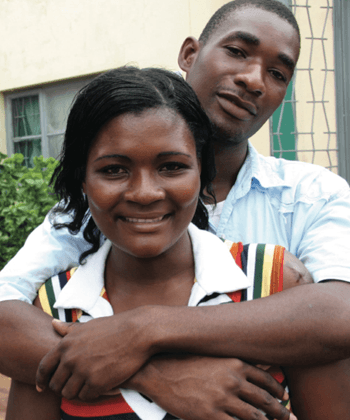
Our Community
Why not integrate separate models of care if it could mean better health for clients and their families? That is the essential question that drives the work of our Africa Family Planning and HIV Integration Fund, or Tides Africa Fund. With support from the Hewlett Foundation, the fund dispersed grants totaling $1.3 million in 2008–2009 to pioneer integrated care efforts in six countries in sub-Saharan Africa.
A new report about the fund, Making the Case for Integration, documents this holistic approach and has just been released. Read on for an introduction to this illustrative report that includes profiles of leaders in the integration field, a summary of current research, and analysis of difficult challenges and real solutions by experts from the public and philanthropic sectors.
 In the past several years government and philanthropic funders have led a dramatic increase in national, bilateral, and multilateral responses to combat the global HIV/AIDS epidemic. This increase in funding has led to a significant expansion in access to prevention, care, and treatment programs in high HIV prevalence countries. However, much remains to be done to reach more populations in need and to provide an array of related health services on the platform of HIV/AIDS infrastructures. For example, throughout much of sub-Saharan Africa, reproductive health and HIV/AIDS prevention services have been offered separately. Separate funding mechanisms often prevent important linkages between HIV/AIDS services and reproductive health services.
In the past several years government and philanthropic funders have led a dramatic increase in national, bilateral, and multilateral responses to combat the global HIV/AIDS epidemic. This increase in funding has led to a significant expansion in access to prevention, care, and treatment programs in high HIV prevalence countries. However, much remains to be done to reach more populations in need and to provide an array of related health services on the platform of HIV/AIDS infrastructures. For example, throughout much of sub-Saharan Africa, reproductive health and HIV/AIDS prevention services have been offered separately. Separate funding mechanisms often prevent important linkages between HIV/AIDS services and reproductive health services.
Health ministries and health facilities are typically organized in parallel, and consequently, clients are required to visit a different provider for each of their health concerns. The unmet need for family planning services in general, coupled with the increasing demand for pregnancy planning by HIV-positive individuals, calls for a more holistic approach to providing reproductive health and HIV/AIDS services.
Large-scale HIV/AIDS programs can reach a broad range of individuals in need of family planning counseling and services for the dual purpose of planning for healthy pregnancies and avoiding unintended pregnancies. Benefits of an integrated approach include the provision of preconception counseling to optimize positive health outcomes for both mother and child; options for preventing unintended pregnancies for women and couples; and ensuring that the risk of HIV/AIDS is considered as part of informed family planning decisions.
Each country faces its own epidemiological, institutional, and social contexts that shape its response to sexual and reproductive health needs. Nevertheless, a stronger linkage between HIV/AIDS and family planning services has the potential to draw on the strengths and resources of both fields in order to help women and men in regions highly affected by HIV/AIDS to make better-informed reproductive and health decisions. Increasingly, program planners and health policymakers have begun to recognize the opportunities missed and efficiencies lost in the parallel approach. This is a timely moment to examine models of integrating family planning counseling and services into HIV/AIDS programs and document the impact of this kind of comprehensive care for clients and programs.
The Africa Family Planning and HIV Integration Fund (Tides Africa Fund) was conceptualized with the Hewlett Foundation in August 2007 to leverage HIV/AIDS funding to support the family planning and reproductive health fields in sub-Saharan Africa that are serving the same populations as the HIV/AIDS providers. The goal of the fund is to identify, enhance, and analyze both existing structures and outcomes of integrated program models as well as promising efforts in the region.
The purpose of Tides Africa Fund is to develop and administer an integrated grants program for non-governmental organizations already providing HIV/AIDS prevention and treatment services in sub-Saharan Africa. In alignment with Tides Africa Fund’s evidence-based model, selected organizations were required to have a clinical practice on site as well as the ability to provide quantitative data on the benefits and constraints of the integrated model as delivered through their existing program.
During the first year of the project, the fund awarded grants totaling more than $1.3 million to organizations providing services in Kenya, Mozambique, Rwanda, Tanzania, Uganda, and Zambia. With continued support from the Hewlett Foundation, Tides Africa Fund is providing both transitional funding to the organizations for an additional year and facilitating the networking and convening necessary to generate a body of evidence on the outcomes and impacts of integrated programs on reproductive health and HIV services.
Ultimately, Tides Africa Fund was designed to enhance client access to comprehensive and voluntary family planning information and services within the context of HIV/AIDS programs to inform reproductive decision-making; and to meet the health and contraceptive needs of women and men in the region. Through integrating family planning services into HIV prevention and care, the fund seeks to increase access to contraceptive methods and enhance the public health impact of HIV programs.

Read the stories and hear the voices of social change leaders fighting for justice.